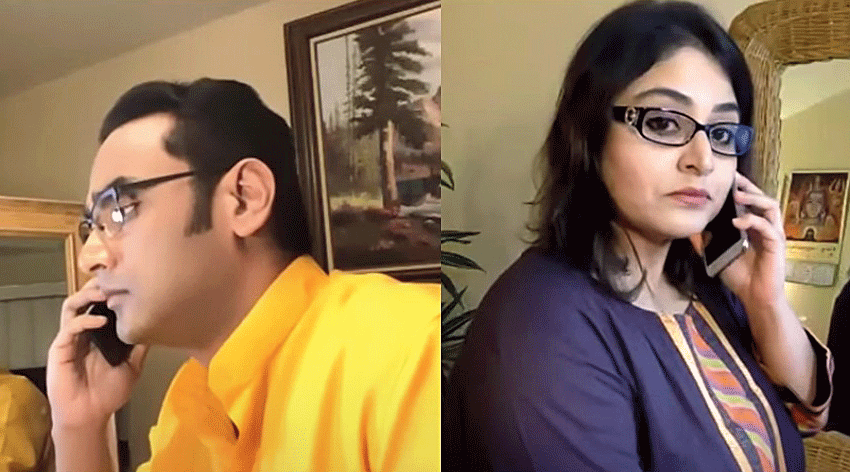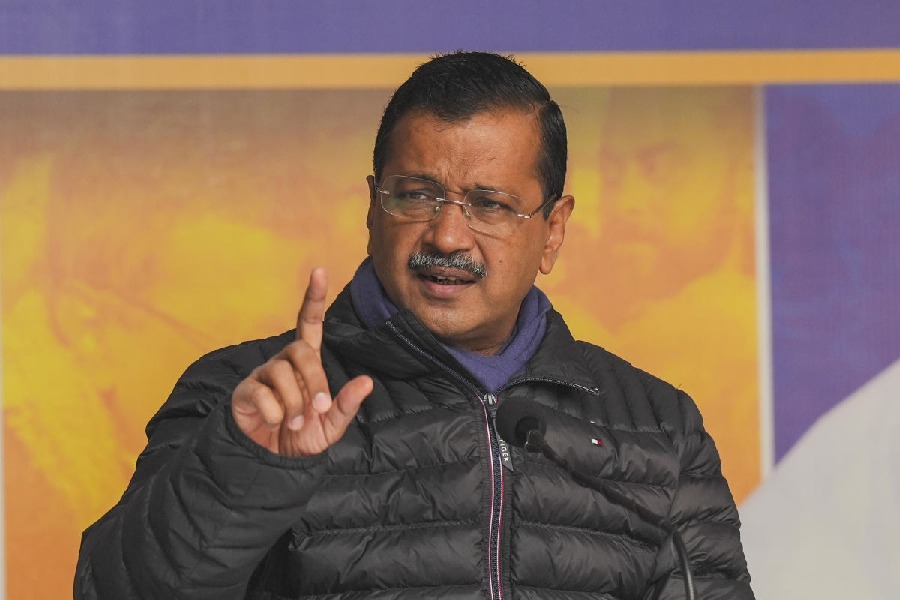A group of amateur theatre artistes based in the US, some of them with roots in Calcutta, has raised $14,000 (over Rs 10 lakh) for theatre workers in Calcutta who are out of work because of the pandemic.
The group based in San Francisco Bay in California — better known as the home to start-ups and tech giants — took to theatre to raise the money, organising a virtual fundraiser on July 17.
Four theatre groups from various time zones in the US “staged” four mini plays in a programme that lasted close to three hours. Each play had multiple actors at various places and everyone logged into a device. The drawing rooms and workstations became the stage.
Actor Debshankar Halder and playwright-director Arindam Mukherjee had tuned in from Calcutta to take part in a panel discussion that followed the plays.
More than 750 people from across the world watched the programme. Online donations from viewers ran up to $7,000 and it is still counting. The employer of one of the organisers is giving a “matching grant”.
Halder, one of the most prominent faces of the Bengali stage, has been running a temporary network to support backstage and offstage theatre workers who have lost their income because of the Covid-19 curbs. The first tranche of the proceeds of the fundraiser will be transferred to the network in a couple of days and the next in a month, the organisers said.
“There are many workers — people who sell tickets and the counter, who do costumes and make-up, lighting and so on. For most of these people, a day’s meal is determined by the previous day’s earnings. They have been hit the hardest,” Halder said at the panel discussion.
Shooting for films and television have partially resumed in Bengal. But there is no respite in sight for theatre. The auditoriums and halls are closed and stage productions have been crippled for over four months.
The Bay Area Amateur Thespians (BAAT) is used to staging plays in front of packed auditoriums. The virtual festival was a first for the group as well.
“The pandemic has stopped our stage productions, creating a void. But we wanted to continue our creative pursuits. We are fortunate that while doing that we have been able to help the theatre fraternity in Calcutta,” Alodeep Sanyal, 41, one of the founders of BAAT, said.
Sanyal directed Tobu Mone Rekho. The teaser described it as “a story of lost love, mixed connections and how life moves on, anchored in the past”.
Three other theatre groups — from Seattle, Chicago and Michigan — “staged” their plays during the programme.
The Michigan group’s play, Phera, was about a childless couple trying to bring a kid into their lives. The Chicago group’s play, tilted Pratibimba, told the story of the dual existence of feminine and masculine entities inside a person. The fourth play, by the group from Seattle, was a “modern-day adaptation” of Shambhu Mitra’s Tahar Namti Ranjana.
“There were many challenges in putting the whole thing together. The actors were in different cities. The video, the audio, the gap between two scenes, the interval between two plays — putting everything in sync was a daunting task,” Sudipta Chatterjee of BAAT said.
“We coordinated between three different time zones in the US. Thanks to an amazing team effort, we pulled it through. On telecast day, the programme happened without a glitch.”
Chatterjee was in charge of technological support for the project.
On July 17, the programme was a Zoom Webinar live event. The following weekend, it was telecast again on BAAT’s Facebook page.
The production was sleek and seeing the plays on screen was a seamless experience. The intelligent use of indoor props accentuated the experience. The third play, for example, was centred around a single phone call between two estranged friends. Stationed at different locations, both had a mirror in front. “The mirror has been used like a character. It allows a peek into the past,” Halder said after watching the play.
The festival generated a fair amount of viewership with comments pouring in from Australia and the UK.
Halder had been to San Francisco during a theatre festival in 2018, where he interacted with Sanyal. A couple of months ago, Sanyal and Halder were talking on the phone when the plight of theatre workers, reeling under the twin blows of Cyclone Amphan and the lockdown, came up.
That discussion was the genesis of the July 18 fundraiser. “We had been preparing for almost six weeks for this. We have people from various walks of life with a common passion for theatre. Our livelihood is not dependent on theatre. But in Bengal, thousands of theatre workers have been robbed of their livelihood,” Sanyal, an alumnus of Kalyani Government Engineering College, said.
He runs a tech start-up in the Bay area.
Halder has started a project called Souvratritya to extend financial help to theatre workers. “It is not my project alone. There are several other like-minded people who have come forward to help. I am tapping my friends in India and abroad,” Halder told Metro.
“To date, close to 150 theatre workers have received help from the charity. We have been giving a small amount every month so that these people do not starve. But there are many more that we haven’t reached,” he said.
Promise Worldwide, an NGO, facilitated the transfer of the money to Halder's network.










